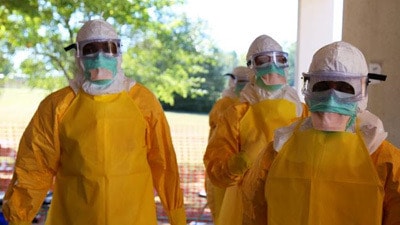At a glance
The Division of High-Consequence Pathogens and Pathology (DHCPP) works to protect the public from deadly infectious diseases.

Our mission
Prepare and help communities respond to U.S. and global health security threats associated with high-consequence pathogens.
Our vision
A future with fewer infections and less suffering caused by high-consequence pathogens and disabling illnesses of unexplained causes.
Priorities
- Improve emergency response preparedness to select agents
- Monitor highly lethal diseases
- Identify previously unrecognized infectious diseases
- Improve capabilities to diagnose, prevent, and treat diseases
Why it matters
High-consequence pathogens cause serious and deadly infections and pose a significant threat to domestic and global security. Many are contagious and most spread from animals to people. Some can be used as bioterrorism agents.
We have a vision of a future with fewer infections and less suffering caused by high-consequence pathogens and disabling illnesses of unexplained causes.
Our work
We accomplish our mission by:
- Quickly and reliably detecting, diagnosing, and characterizing infectious diseases
- Supporting outbreak investigations
- Tracking and analyzing disease dynamics and ecology
- Building laboratory and epidemiological capacity
- Developing and evaluating diagnostic tests, treatments, and vaccines
- Informing and educating healthcare providers, health officials, policymakers, and the general public
Leadership Bio

Fernando Torres-Vélez, DVM, PhD, serves as the director of the Division of High-Consequence Pathogens and Pathology in CDC’s National Center for Emerging and Zoonotic Infectious Diseases.